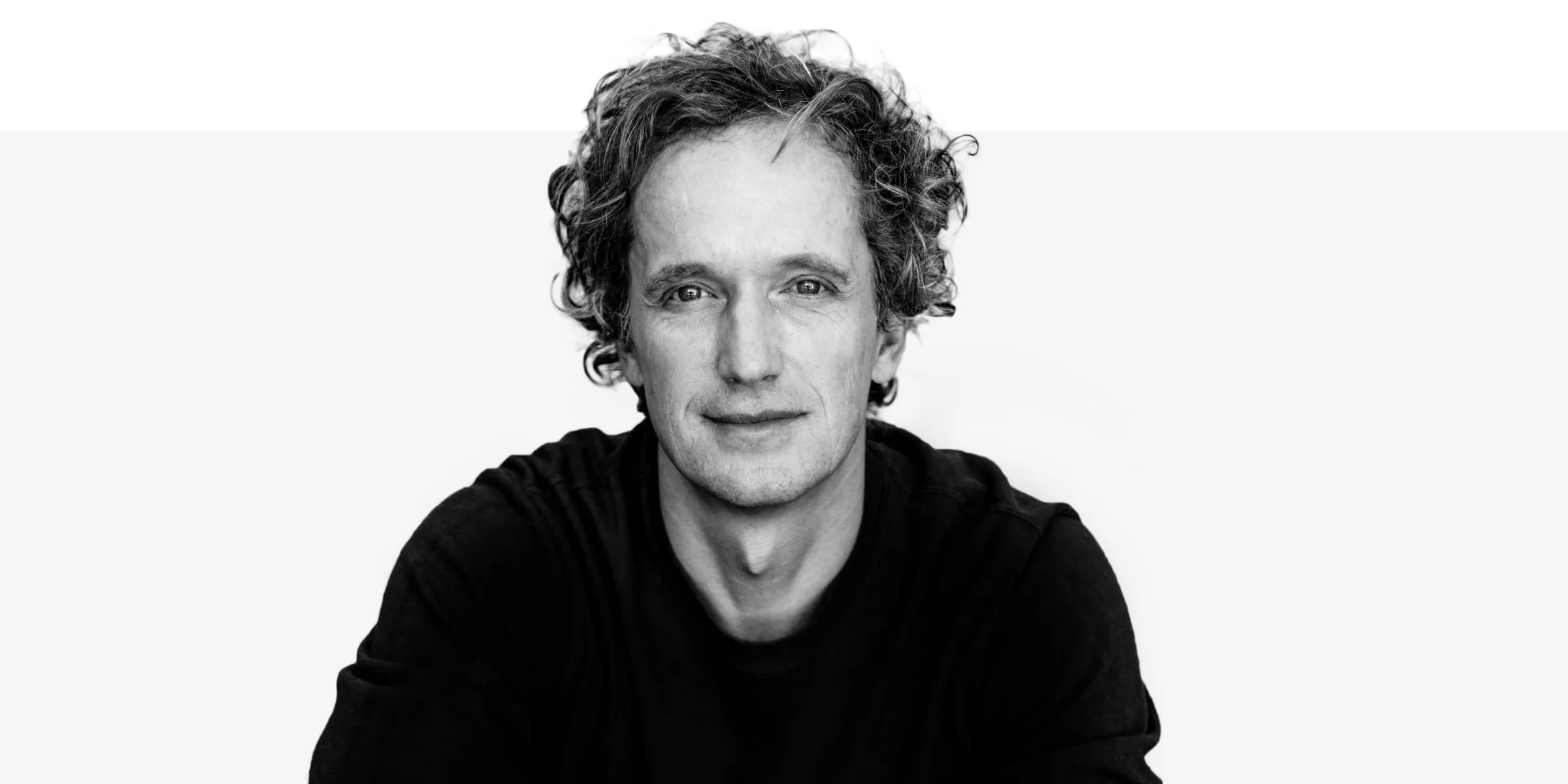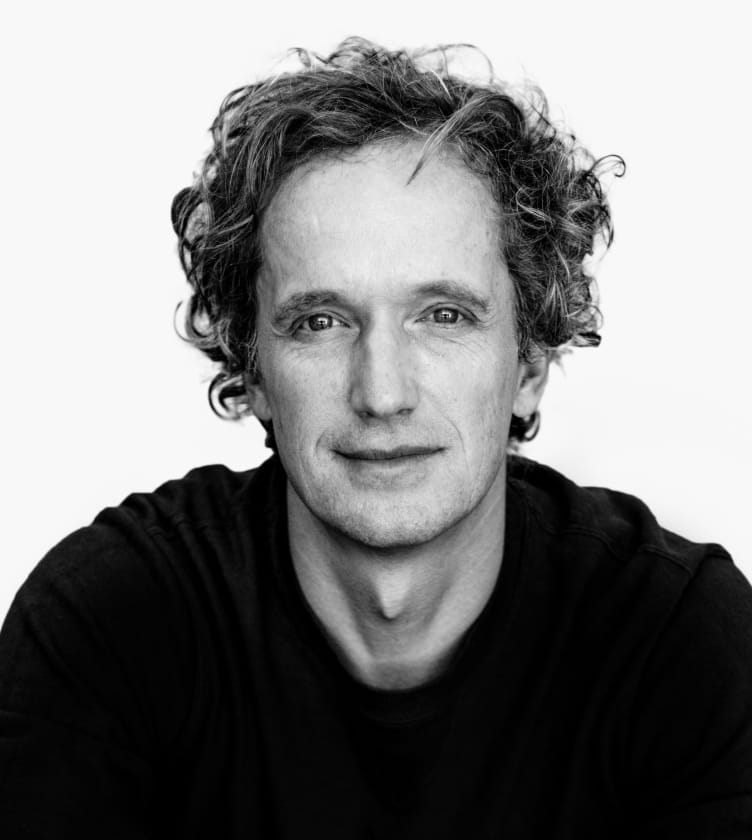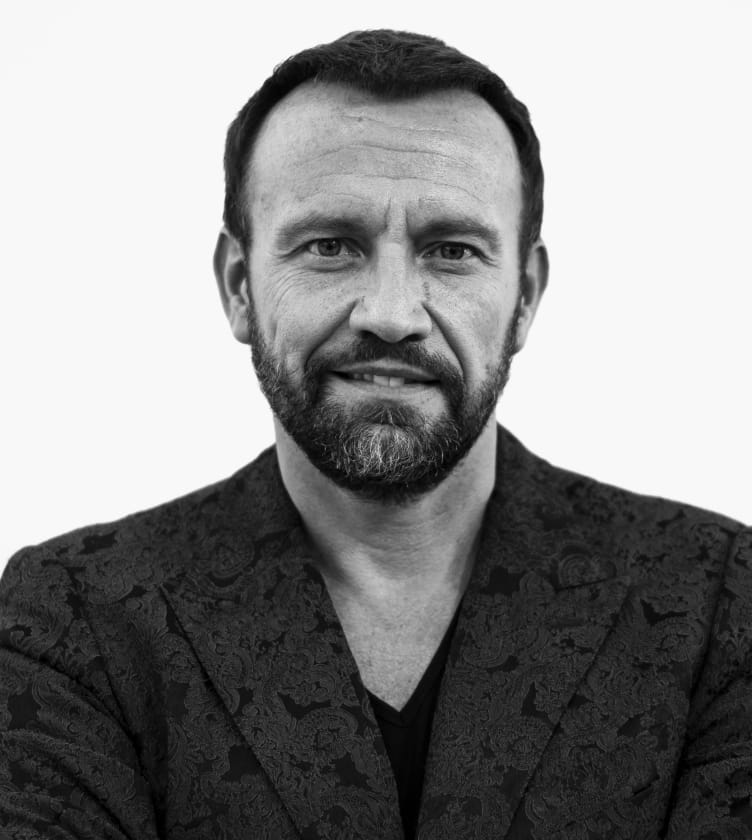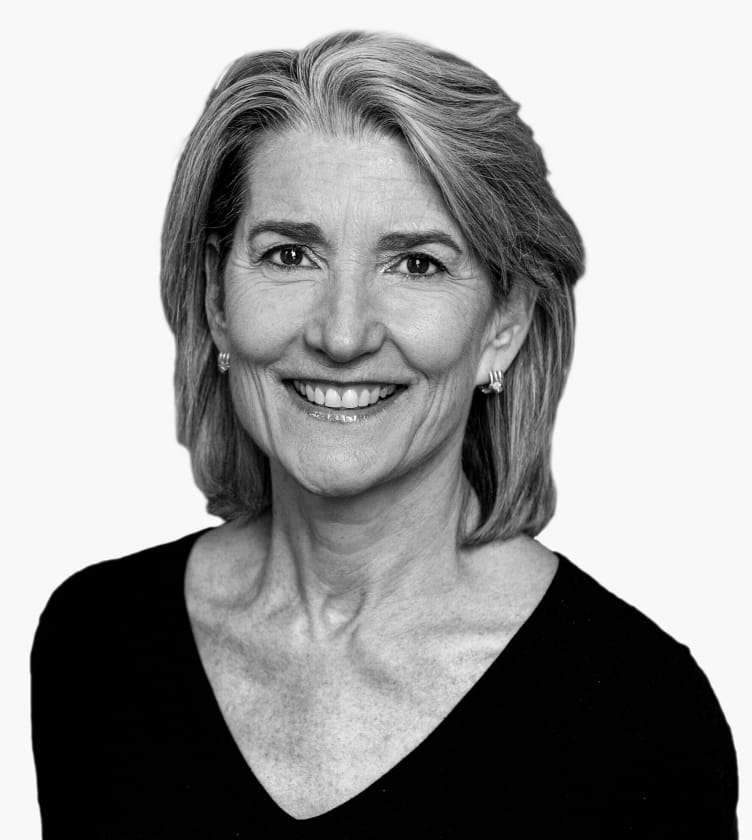Fuseproject founder and designer Yves Béhar says that adapting and pivoting is more critical than ever before in these unpredictable and changing times.
San Francisco–based designer and entrepreneur Yves Béhar discusses the profound life-and-work shifts happening before us.
On the podcast, he offers insights on how the COVID-19 pandemic is reshaping companies’ and employees’ views on work and home, why honesty and integrity are becoming more important, how virtual tools are transforming collaboration and creativity, and how surfing can serve as a metaphor for leadership.
Read more about how Béhar believes COVID-19 will change the way we work, and how his passion for surfing serves as a metaphor for his business philosophy here.
SPENCER BAILEY: Hi, Yves. Welcome to the Workspace of Tomorrow. It’s great to have you with us today.
YVES BEHAR: Thank you. I’m happy to be here.
SB: I wanted to begin by talking about a pretty obvious fact, which is that work and life have never been more blurred, connected, but with COVID-19, there’s just so many of us now quarantining, sheltering in place, it’s making it almost more exacerbated. So I’m wondering, how do you think this moment is reshaping how we work? And what shifts, when it comes to work and the workspace, do you imagine we’ll see coming out of this?
YB: Well, I think that, in many ways, what we’re experiencing today informs us about what’s important, and clearly, being with other people, collaborating in person, is important. We can do without it, we can spend a lot of time on Zooms. But I think, psychologically, being in a room with other people that’s virtual versus physical isn’t as satisfying.
But I do think the positives are that we’re more accepting of the fact that work and life are really sort of colliding into one. When you see people in their Zoom, and their family, and their lives, and the interruptions, and their home environment, and all the things that we have to juggle, they’re the same things we have to juggle on a daily basis—on a normal day, not on a Covid-19 day. And I think we’re becoming more accepting that life is going to interrupt work, it’s going to be a part of work, and we need to be more tolerant of that. In so many ways, I think it brings a moment of informality, and less formality, for me, has meant more humanity. I feel I know more, I see more of my colleagues’ lives and challenges.
SB: Yeah. Do you think, connected to that, this will be kind of increasing the value somehow—or at least bringing it to the fore—of creativity, of empathy, of emotional intelligence?
YB: I think it does, yes. I think we are recognizing the importance of people’s work and people’s support. When we think about teachers, when we think about medical staff, when we think about people who take care of our offices, when we think about grocery stores, et cetera, I think, clearly, we’re all part of the same fabric. We’re all part of the same team, in a way, that that makes things function, that makes everyday life possible, and I think there is a renewed appreciation for everybody’s role and everybody’s contribution to that.
SB: Values-based businesses are clearly the name of the game, they have been for some time, but I think that this pandemic’s going to kind of increase that to an even further degree. People are paying much more attention to who makes things, how they’re made, where they come from. And also, supply chains are going to be in our mind a lot more. Which values do you think are going to kind of rise above and rise up, and be really central or essential to companies?
YB: I think having a human connection between company and customer or people is going to continue to rise. I think companies are acting today in ways that demonstrate those values, and in many ways, this is who we want to connect to. We want to connect to companies that are supportive of the things that we believe in, which is: There is a direct connection with how you make things, where you make things, and the environment. And I think the values of simply transparency, not trying to say that you’re perfect—and not trying to communicate that what you do is the best; I think that those forms of communications are going to go by the wayside. Rather, communicating that you are doing your best and that there is more to do, there’s better ways to do it, but you are innovating, you are being considerate, and you want to do better in the future, continue to improve, I think that communication is much more relatable, and hopefully, what we’ll see a lot more of in the near future.
SB: Yeah. Sort of the classic maxim: “Do unto others as you would have them do unto you.”
YB: Yeah, yes. [Laughs] I think that’s a good maxim, of course. But also a sense that we’re all in this together, and my contribution as a company, or as a maker, as a builder, can only do well if I am endorsed by you, the user or the customer. And your contribution as a consumer is to push me, to encourage me, to challenge me, to contribute to the direction that I would like to take. In so many cases, I believe that the consumer has such a key role today in, as it’s commonly said, to vote with their money, to support the brands and the companies that are doing things that I think, as a consumer, are in line with my values.
SB: Do you think this sort of idea of whole-earth thinking is going to become more and more central to the conversation?
YB: I’ve always thought that this is the right way to operate for any business. I don’t think that we’ve always sort of fully reconciled the conflict, sometimes, between convenience and doing the right thing, and I think the contemporary brands are really trying to bring the two elements together. So this notion of service, this notion of subscription, this notion of being committed to a brand and what they bring to me, over time, I think is becoming stronger and stronger. For example, over ten years, for the last twelve years, I’ve received a vegetable box from this farm up in Northern California, and that box today is a godsend, because we get beautiful, fresh vegetables, straight to our home. This is a kind of faith and being committed to a brand and vice versa, that that service continues during the Covid crisis—but that I also continue to support it for that long—is, I think, what every brand should be seeking, what every business is going to be looking for.
SB: Virtual communication—you mentioned Zoom, but I’m also thinking, Slack, Google Hangouts, any of these platforms—it’s proven especially effective. I think a lot of companies, bigger companies, for example, that maybe hadn’t gotten on the Slack train, are now on the Slack train. How do you think these tools are impacting how we work from a collaboration and creativity standpoint?
YB: Well, what I like about these tools is that there’s an element of transparency there. You can really see who is contributing, it feels that it’s less about politics, because it’s more about the delivery, it’s more about how you support each other. And I’ve really been a believer for a very long time that, especially in my area of product development, design, entrepreneurship, that really nothing gets done by one person and one person only. It’s all about collaborating, it’s all about fusing different disciplines, it’s all about bringing people together. So to the extent that these tools enable that, I think they are great ways to sort of support that team collaboration. Some of those tools can also be a distraction and sort of add to the multilayer of communication that we have—texting, and Slacking, and emailing. It can also become a burden. I think we need to know when to sort of turn some of that off, focus on the work and the collaboration, but then use the transparency of those tools to show progress and to enable everyone to sort of participate and chime in.
SB: Yeah. So sort of setting boundaries either individually or as a company leader saying, “Do this, don’t do that.” Almost like the Cal Newport “digital minimalism” idea.
YB: [Laughs] Yeah. I don’t know about how we’re able to get to digital minimalism these days, but there are certain things that I do. I don’t have notifications on a lot of these applications. Even though a lot of communication for me goes through WhatsApp, I don’t want to have it on notifications, because it would be overwhelming. Same with WeChat, or Twitter, and Instagram. I really don’t need to be notified of what’s going on on there. When I want to see that information, when I want to communicate there, then I go and I check. We really need to find ways to sort of lower the level of distraction, because that—and I think even more so today than ever—continues to be, I think, a major source of interruption.
SB: Yeah. Yeah, and I think just the screen time in general seems to be distracting, our eyes are twitchy at the end of it. It can become quite complex and difficult to stay focused on anything, if you’ve been staring at a screen too long.
YB: Yeah, it’s like having pastries or candy sort of at the corner of your desk. The science has clearly shown that if you put that candy or that pastry eight feet away, you will eat a third of it. If it’s within arm’s reach, you will consume a lot more of it. So how do we put these technologies not at arm’s reach, kind of further away, I think is one of the challenges of our modern times.
SB: I want to talk about entrepreneurship, because right now, Covid-19 is really impacting small businesses, startups, others facing this crisis. How are you looking forward and thinking about opportunities right now, and what sort of advice would you give to an entrepreneur on how to kind of deal right now?
YB: Well, currently, I’m juggling a lot of startups, I’m advising probably a dozen of them, and I have a couple them myself. I have a core belief and I’ve seen that over and over, which is: In the times of deep crisis, the best startups, the best entrepreneurs, really sort of jump forward and take the risk to put something together that really is distilled by the times that we live in. In so many ways, what is going on today is putting a lens on what is needed, what could be important to what could be a successful business.
I would say this is a good time to pivot or create something new for startups that are struggling.
Some of the startups are finding their growth and their reason to be, in this crisis, and others really have to reevaluate and think about how to quickly adapt. And at the end of the day, it’s all about how fast we can adapt. That’s a sign of intelligence, whether you have a company, or whether, as an individual, you have to adapt and change to the current times we live in.
SB: You’ve long had a human-led approach to design, really from the start, and I’m curious, what do you think people need most right now, especially as it relates to maintaining a healthy work-life balance?
YB: I think what people need today is flexibility, meaning, whether you’re a business owner or whether it’s for yourself, giving yourself or giving your employees flexibility to manage and deal with their own work times or family time is absolutely key. Everybody wants to continue to perform, everybody wants to continue to do good work and to contribute. That is absolutely for certain, and this is something that gives me a lot of hope, actually, to see our teams come together, great presentations being put together, even pitches, and new clients being brought in. It’s amazing to see just how engaged and committed people are, while at the same time, they are juggling some difficult times. Homeschooling kids is not something that any of us—I think only a very few of us—have chosen to do. And so, suddenly, it is something that people have to do, and the ultimate lesson, I think, for employers here is going to be how flexibility keeps people sane and happy, and how it keeps them wanting to continue to contribute and be a part of the business.
SB: What cracks in work culture do you think the pandemic’s revealing?
YB: I think a lot of what I’m looking at is there’s a lot of worries, or there’s a lot of things that are nonessential, that are not so important anymore. And you put the secondary or tertiary worries, or activities, that you do, you sort of put them aside a little bit, and you really sort of refocus your mind on the things that are important: the people close to you, your family, your close collaborators, your close friends. And then there are a lot of extraneous other things that we do and we worry about, and we feel stressed out about or pressured by, that are really falling by the wayside.
SB: It’s putting a focus on the essentials, really.
YB: It is, and I think that’s a good thing, and that’s certainly something I want to take back to normal life. If you go to Burning Man, the after Burning Man time, you call that the “default world.” So there’s lots of things that I’ve learned in this crisis, where I’m re-evaluating how I’ll do things and what I’ll be doing, what I’ll be focusing on, back in what I call the default world.
SB: The other side.
YB: Right.
SB: You’ve been based in San Francisco for more than two decades. You’ve seen the impact of Silicon Valley on our society, on our culture, on work at large firsthand. What impact do you think Silicon Valley has had on the workspace, and how is that shaping the workspace right now?
YB: I mean, for me, so much of what Silicon Valley has created over the last three decades has made design work so much more potent and so much more attainable, so much more reachable. Whether it’s the tools of production of design, or whether it’s the creativity tools, the software, whether it’s the prototyping tools, 3-D printing and machining. It’s really incredible how everyone at Fuseproject now has access to it, and feels very much empowered to build that prototype quickly to render this idea quickly as a way to put their concept forward. In many ways, I think in the world of design, the digital tools that Silicon Valley has developed have really been nothing short of miraculous, in terms of our ability to produce great works of design.
More broadly, I think the last month or so has made us reevaluate a little bit the extent of the self-flagellation—and flagellation that’s happened over the last year or so towards technology. And I do feel that what we’re looking for is certainly ways to sort of communicate, and being able to communicate digitally has become more clearly that this is an absolutely essential part of our lives. But I also think that it’s put into focus the fact that, more than ever, companies have to act accordingly and transparently. And it’s not because you’re providing an essential service that you can be hiding or concealing your true colors. And so, in many ways, I think it’s more important than ever that technology be done in a humanistic and sort of people first way, and hopefully, that is something that we keep in mind as things go back to normal.
SB: Yeah. Sort of a redefinition of well-being.
YB: Yeah. I think there was a huge trend towards taking care of yourself, both mind and body, before the crisis, and I think what Covid is also teaching us is that well-being is of prime importance, especially as you’re being confined, as you have less social contact, taking care of your psyche, taking care of your body, is going to continue to be very, very important.
SB: I wanted to end—which is sort of connected to this—with surfing, which is a big passion of yours. I can only imagine you bring this into your work as an entrepreneur and leader in the studio. What has surfing taught you about work?
YB: Well, not every surfing session is great. Quite often, I tell my friends, “Hey, I’m going out. I’m suiting up, I’m going surfing,” and they’re like, “Well, how are the waves? How is it out there?” And I’m like, “Why does it matter? It’s all about going out there. It’s all about being in the element.” It could be a great session, it could be a mediocre session; it’s about enjoying that moment. And in so many ways, I think entrepreneurship isn’t that dissimilar, because you never know if it’s going to be great, you never know if it’s going to turn out to be a great success or a great startup, but you’re compelled to do it because you feel it’s going to make a difference, you feel it might be important, and you want to take that risk with the certainty that you will learn something, that you will grow from it, and I think that is the fundamental nature of surfing, and maybe not that different from being an entrepreneur.
SB: Yves, this was great. Thank you so much for joining us today.
YB: Yeah, and it’s so good to see you too. Next time, let’s hope for a big hug.
SB: Yeah. Be well.




